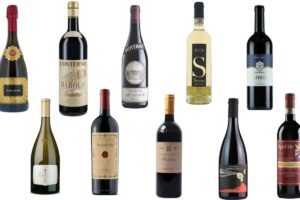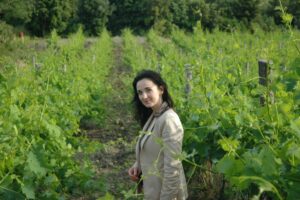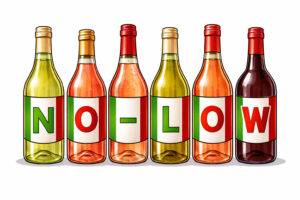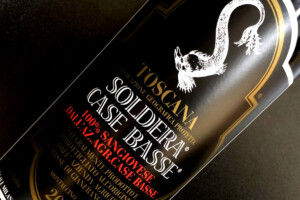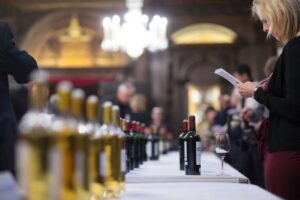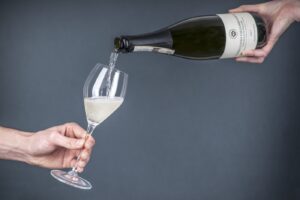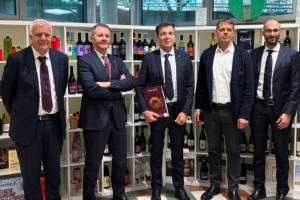On February 9th a new law was approved by the Senate Agricultural Commission, without modifications by the House, definitively changing wine sector regulations. The new document corrects and reformulates, after forty years, law Dpr 12, n.162, written on February 12, 1965. This is a concrete response to the need for simpler and more harmonious laws for production and for more comprehensive revisions to the sanctioning system safeguarding both producers and consumers. These measures now finally adapt Italian regulations to those of the European Union, with opportune deregulation that simplifies and renders clarity to this delicate material.
The measure has taken the text of the national regulation implemented by the Community rules relative to the organization of the common wine market, provided by EC Regulation n. 1493, 1999, and includes the numerous dispositions in a single text, of both primary and secondary rank, enforced for production and commercialization materials for wine, as well as reforming the sanctioning regime and disciplining the commerce of must, wines, and vinegars, defining a clear and innovative normative picture. It assumes as its main responsibility the equal balance between simplification of administrative measures and the needs of product assurance and safeguarding consumers.
“A measure has been expected for ten years now - declared Minister Gianni Alemanno - that would satisfy both the management needs of national and local public entities, as well as the need by producers for simplified procedures, to have bureaucratic costs lowered, and updated sanctioning regimes”. “The Government and ministry - confirmed state undersecretary for agricultural politics, Teresio Delfino, and representative of Mipaf and the Government Commission - have actively worked to sustain this measure which lays the foundation for the modernization, that is agreed upon by most, of wine sector norms. The positive signals received from foreign markets - concluded Delfino - are pushing our efforts in the direction of structural reinforcement within the sector and towards the next challenges at a Community level”. Satisfaction was also expressed by the most important organizations of the sector.
The main aspects of the new measure:
The text of the law regarding the “regulations for the implementation of Community norms concerning organization of the common market (OCM) for wine” approved by the Senate Agricultural Commission, after having been approved by the competent House Commission, results in a general reordering of the winemaking sector, and creates important novelties. Here are the main points of the new measure:
Native grape varieties: a native Italian grape is defined as grapes present in a geographic area within the national territory and which the respective region or province ascertains the cultivation of in their territory of competency. Passito style wines: definitions have been introduced for sweet wines made from partially dried grapes, or raisin character wines, as indicated by typical geography (Igt) and the denomination of origin that has been provided by such typology. The term “passito” can be substituted on labels with the traditional term “vin santo”, solely in the case of VQPRS which provides for such mentioning. Prohibited substances: in article 5 of the new law is a list of prohibited substances as provided by Dpr n.162. The storage of pumice has become regulated, as well as the holding time in temporary harvest holding centers outside of the company, wine dregs and the preparation of vinello (wine made from vinaccia). Regulations of enological products: regulation of the use of enological products which can be held in enological establishments and which respect national and Community norms, from both the Ministry of Agricultural and Forest Politics and Health Ministry. Sanctions: sanctions have been determined for the use of prohibited toxic substances, and for the holding of unjustifiable wine products, as well as other sanctioning provisions in order to create the best possible harmony. Controls: a committee to coordinate fraud control services has been instated through the Ministry of Agricultural and Forest Politics, with the task of creating a continuous collaboration and coordination between the various administrations responsible for controls. The committee is made up of three Mipaf representatives, one of whom will be president, three representatives from the Economics Ministry, three from the Health Ministry, one from the Ministry of the Interior, and one from the Ministry for Productive Activities.
Copyright © 2000/2026
Contatti: info@winenews.it
Seguici anche su Twitter: @WineNewsIt
Seguici anche su Facebook: @winenewsit
Questo articolo è tratto dall'archivio di WineNews - Tutti i diritti riservati - Copyright © 2000/2026












